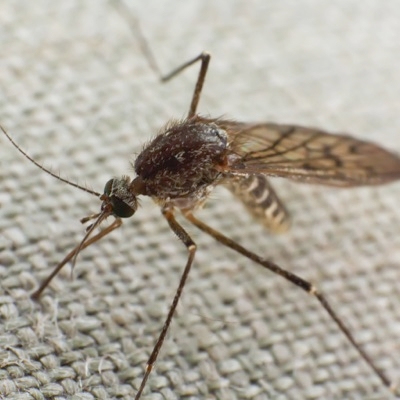Prevent Heartworms:
In Dogs, Cats, And Ferrets Year-Round
Summary:
Heartworm Disease is 'a preventable disease, which is why it's so frustrating as a practitioner when you see a case,' says Melanie McLean, D.V.M., a veterinarian at the U.S. Food and Drug Administration (FDA). Treatment can be hard on animals, and McLean says 'it's much easier and healthier for the pet to prevent the disease in the first place.'


The bad news: Heartworm disease can be fatal to dogs, cats, and ferrets. The good news: You can protect your pet from this disease.
“It's a preventable disease, which is why it's so frustrating as a practitioner when you see a case,” says Melanie McLean, D.V.M., a veterinarian at the U.S. Food and Drug Administration (FDA). Treatment can be hard on animals, and McLean says it's much easier and healthier for the pet to prevent the disease in the first place.
Heartworms are carried by infected mosquitoes that transmit parasitic worms that grow in the arteries of the lungs and heart of dogs, cats, and other species of mammals, including ferrets. The heartworm larvae enter the bite wound and move through the pet's body. They can grow up to 12 inches long.
The disease is not contagious from one pet to another, and heartworms in humans are very rare.
Use Heartworm Prevention Medication Year-Round
The FDA has approved several heartworm prevention medications for dogs and cats, but only one, to date, for ferrets. Treatment can vary, as oral, injectable or topical, depending on the animal species, but they all target heartworm larvae, not adults.
That's one reason veterinarians often recommend that pets receive heartworm prevention medication all year long. Although there are a fewer number of mosquitoes in the winter, there is still a risk that an animal could contract heartworms if the owner stops giving medication during this season.
“You never know when the first mosquito is going to come out, or when the last mosquito is going to die. Heartworms have been reported in dogs in all 50 states, and just because you live in a state with a colder climate doesn't mean that your animal is safe,” McLean warns. Animal owners who stop giving heartworm prevention medication during the winter run the risk of their animal contracting heartworms. If the animal becomes infected and you later resume giving the heartworm prevention medication without testing, you may be putting your pet in danger. The preventive medication can kill so many microfilariae (the offspring of adult, female heartworms) at once that it could shock the animal's system, with potentially fatal results. Also, the prevention medication will not kill adult heartworms, which will continue to reproduce.
Testing for Heartworms is Important
Be sure to have your veterinarian test your dog before you start using a heartworm prevention medication. (Prevention medications for dogs come in all three forms: oral, topical, and injectable. Talk to your veterinarian about which is best for your dog.) Dogs that have heartworms may not show symptoms right away, and your veterinarian can easily test your dog with a simple blood test.
And even if you've kept your dog on a steady regimen of preventive medication, your veterinarian should test for heartworms on a yearly basis. No drug is 100 percent effective, and you want to make sure the drug is working. Moreover, owners often forget to give the prevention medication for a month or longer.
Cats and Ferrets: Indoor Pets Need Heartworm Prevention Medication, Too
Even if your pet rarely or never goes outside, she should still take a heartworm prevention medication. Mosquitoes that transmit heartworms can easily access the indoor environment (and therefore your pet) through open doors and windows.
Heartworms don't survive as well in cats as they do in dogs, but cats are still at risk for heartworm disease. However, diagnosing heartworms in cats is not as easy, and testing is not as simple, or accurate, as in dogs. In addition to blood work, testing in cats can include X-rays and ultrasounds.
Unlike for heartworm disease in dogs, there is no FDA-approved treatment for killing adult heartworms in cats. Because of the additional complications associated with diagnosing and treating cats, prevention becomes the best weapon against heartworms in cats. It's best to place both indoor and outdoor cats on a year-round, FDA-approved medication to prevent heartworms. For cats, there are both topical and oral prevention medications.
Testing for heartworms in ferrets is also not as easy, simple, or as reliable as in dogs. No drugs are FDA-approved to treat heartworm disease in ferrets, so prevention is critical. There is one drug (Advantage Multi for Cats) approved to prevent heartworms in ferrets. It's a topical medication, and is also useful for killing adult fleas.
Useful Tips About Heartworms and Your Pet
- Talk to your veterinarian about when and how often to test your pet for heartworms.
- Talk to your veterinarian about which type of heartworm prevention medication is best for your pet. For example, pet owners with children should pay particular attention when using topical treatments, which are applied to the skin, and follow the directions carefully to minimize the child's exposure.
- Heartworm prevention medications are by prescription only—so beware of an internet site or store that will dispense medicine without a prescription.
- FDA monitors approved heartworm prevention medications for problems that may occur with use, such as unexpected side effects. Pet owners are encouraged to report any side effects to their veterinarian and the drug company that manufactured the prevention medication.


